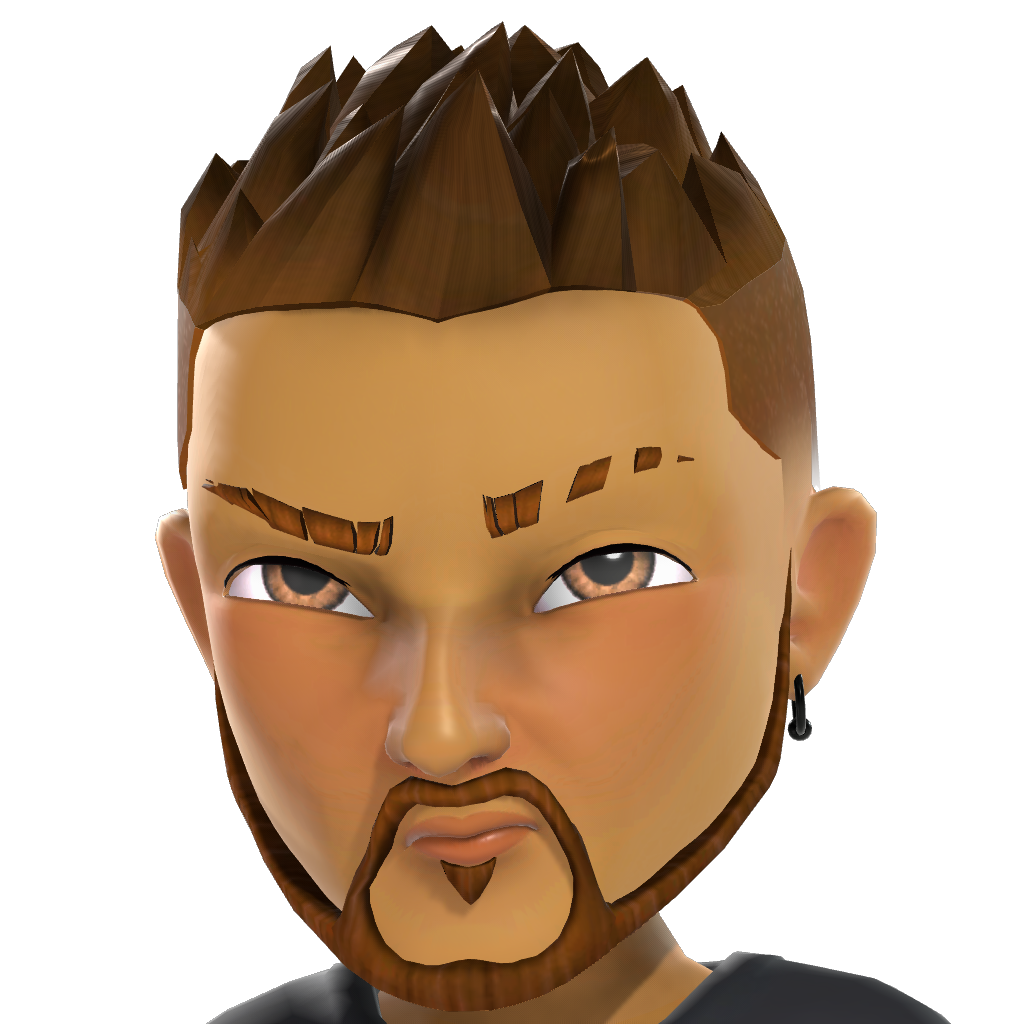Do you actually own anything digital?::From ebooks, to videos and software, the answer is increasingly no
Well, I have 10 Tb of pirated digital content sitting safely at my own home, so I would say yes, yes I do own a lot of digital stuff.
Right there with you buddy, 13TB and growing. Self hosted media servers are the best.
Those are rookie numbers. Need to start getting entire TV shows in 4k and things you’ve seen previously but may want to watch again in the future quickly and easily.
Personally can’t justify many series in 4k, some of the ones I have only ever got SD releases (DVD at best) but there are a few I can justify 4K for. Mainly very cinematic shows such as The Mandelorian or The Last of Us. As long as they have subtitles in the other shows and are available in their best original release resolution it’s fine for me.
For example if the original Doctor Who series had a 4K release for it’s entirety it would probably be my entire server lol. 693 episodes in 480p is almost 300GB.
deleted by creator
Y’all are chumps.
I got 6TB SSD and 16TB HDD.
But I guess it’s less than half full so… Idk, maybe Im the chump with too much headroom.
They’re my bytes, and I’ll put them in whatever order I wish, thank you very much.
Yes, because I go out of my way to make damn sure of it.
i do if i stole it
Based af
ARRR!!!
Can it be taken from you, at any time, for any reason or no reason at all?
If yes, then you don’t own it.
I mean, that technically applies to everything. The government can seize your land, the police are in the news every few days for straight up taking money out of people’s homes and vehicles and shooting dogs, robbery is still a living profession, etc
There’s really not a lot that sentence doesn’t apply to, if anything at all.
Can the US government cease my land?
Yes, imminent domain. You don’t own land you only lease it from the government.
Can they stop your land?
I think you mean seize. And I guess it depends on where you live in the world.
I think you continued to make his point in a dark way.
When it comes to the US government at least, there are 4th Amendment protections in place, so no, your property can’t be seized “for any reason or no reason at all”.
Theft is a thing, but it’s random and you have the right to defend yourself in your own home. You also aren’t at risk for losing EVERYTHING. Not in the way you are if your digital library license gets revoked.
If a cop can take your property with no consequences and you will be arrested or killed if you defend yourself and your property, then what the law says doesn’t matter as the defacto state of reality isn’t concerned with such petty things as laws.
This comment is so fucking frustratingly ignorant of the realities of living in the US. Is this a troll comment?
In MY state at least, it’s absolutely a fact but it does vary by state:
https://www.osbar.org/publications/bulletin/06nov/forfeiture.html
You clearly don’t know about the state of seizure laws in the US over the last years. Having cash is reason enough for them to seize it and they don’t have to suspect you of a crime. They can simply find the cash as suspicious and take it and you have to prove the legality of your cash or property at your own cost/expense to get it back.
You clearly don’t understand the status of civil forfeiture in my state, but it’s cool, we only changed it 23 years ago…
https://www.osbar.org/publications/bulletin/06nov/forfeiture.html
You said the Fourth Amendment, not your state law. The fourth amendment should protect from this but historically it hasn’t. One good state doesn’t change that.
Aye, I be ownin’ it all, mateys!
Possession is 9/10ths of the law, so I 90% own a whole lot of stuff I pirated while I don’t own most things Ive paid money for… Great system guys
I’ve got a digital watch
My digital watch, a Pebble, stopped working. The company who maintained it got bought by Garmin. Garmin broke my digital watch 🙃.
Mine is a Casio I’ve had for about 30 years, I’m pretty sure it’s mine by now
Does gadgetbridge not work?
I had trouble with some watchfaces. Couldn’t get my favs working consistently.
Removed by mod
It was Fitbit.
Thanks for the correction.
I actually wonder if the files you download off Bandcamp have DRM on them or not.
The only “digital” I download, is something that I can put on my personal storage. If I can download it to Nintendo Switch and then move it to USB or SD card, then I can clone the sd card and therefore I own it. (immediate usage might be different, and they may chose to delete if it is put back on the Switch. But I still own it, I just need to find an alternative method to use it).
Same goes with games/movies/whatever. If I can download it and store it on my NAS, I own it.
If you are paying for “digital” but you cannot acquire a copy of it, then it is NOT “Digital” it is streaming. You are paying for the privilege of using some services’ electronic library, but you do not own anything on it.
I’ve been watching this argument lately, and its amusing. The whole Sony thing about Discovery (or whatever it was) has nothing to do with ownership. You were paying to access a library that Sony curated. Sony dropped the contract with the other party, and chose to tidy their library. You just have access to it, because they let you. You do not have any ownership whatsoever, you signed a T&C that says Sony curates the library and they can do what they like.
People seem to have a hard time using words like “content”, “streaming” and “digital” vs “electronic copy”, “local digital copy” and “DLC”; and then confuse "ownership and “content access”.
Not with DRM
Here’s the summary for the wikipedia article you mentioned in your comment:
Digital rights management (DRM) is the management of legal access to digital content. Various tools or technological protection measures (TPM) like access control technologies, can restrict the use of proprietary hardware and copyrighted works. DRM technologies govern the use, modification and distribution of copyrighted works (e.g. software, multimedia content) and of systems that enforce these policies within devices. DRM technologies include licensing agreements and encryption.Laws in many countries criminalize the circumvention of DRM, communication about such circumvention, and the creation and distribution of tools used for such circumvention. Such laws are part of the United States’ Digital Millennium Copyright Act (DMCA), and the European Union’s Information Society Directive – with the French DADVSI an example of a member state of the European Union implementing that directive.Many users argue that DRM technologies are necessary to protect intellectual property, just as physical locks prevent personal property from theft. For examples, they can help the copyright holders for maintaining artistic controls, and supporting licenses’ modalities such as rentals. Industrial users (i.e. industries) have expanded the use of DRM technologies to various hardware products, such as Keurig’s coffeemakers, Philips’ light bulbs, mobile device power chargers, and John Deere’s tractors. For instance, tractor companies try to prevent farmers from making repairs via DRM.DRM is controversial. There is an absence of evidence about the DRM capability in preventing copyright infringement, some complaints by legitimate customers for caused inconveniences, and a suspicion of stifling innovation and competition. Furthermore, works can become permanently inaccessible if the DRM scheme changes or if a required service is discontinued. DRM technologies have been criticized for restricting individuals from copying or using the content legally, such as by fair use or by making backup copies. DRM is in common use by the entertainment industry (e.g., audio and video publishers). Many online stores such as OverDrive, use DRM technologies, as do cable and satellite service operators. Apple removed DRM technology from iTunes around 2009. Typical DRM also prevents lending materials out through a library, or accessing works in the public domain.
Digital restriction management
I really wish there was some form of individual copyright that could be sold for specific media. I buy a song on itunes - I own a limited license to listen to that song so long as iTunes may serve it. If I was smart enough to download it to my device, then I might hold onto it a few moments longer in spite of Apple losing the copyright and denying me the ability to listen again on devices without the download. Sucks for me right?
What if I could buy a limited copyright? One that is strictly tied to my individual person and that specific media I had purchased. That copyright is nontransferable, but it is platform agnostic. I could then use that legal copyright to view or listen to that media on a streaming or distribution platform of my choosing. I could listen to a song on Spotify, or Pandora, or Apple, or Google, and I only had to buy it once. Those platforms would not need to negotiate copyright access for media, only demonstrate the ability to serve that media and limit access to those with the copyright.
I would HAPPILY buy all of my media for a … 3rd time? 5th time? God I don’t even know how many times I have purchased some of my music. Vinyl, CD, iTunes, streaming services a plenty… a second CD or two from mixes. Yeesh. I’m fucking tired of it. I want to be able to feel as if I had some kind of longer lasting ability to access the media of which I have paid for.
deleted by creator
No, more like a way for copyright holders to generate and sell limited licenses. Nothing requires centralization here except some brief api for validating licenses.
Does anyone?
IMO, nobody owns ideas. Only execution.
not the guillotine
Doesn’t work on entropy.
It depends on how you acquired it. Nobody can take the license for your pirated, modded fallout. Literally buy it anywhere but itch.io? You probably don’t.
You own most GOG games, too
How is GOG? I haven’t used it and have heard noth sides. Owning it alone makes it worth looking at.
It’s pretty good they do a good job of keeping old games available in a decent state
No. Not unless you have it stored on media that you own and control.
Yes I own things because I simply don’t pay for something if I’d need to open proprietary software or pay a subscription fee to use it.
It’s really quite simple and remarkably easy to do, it’s just more mental load to decide what to buy and people just want to pay monthly and forget about it and get mad when it stops magically working.















